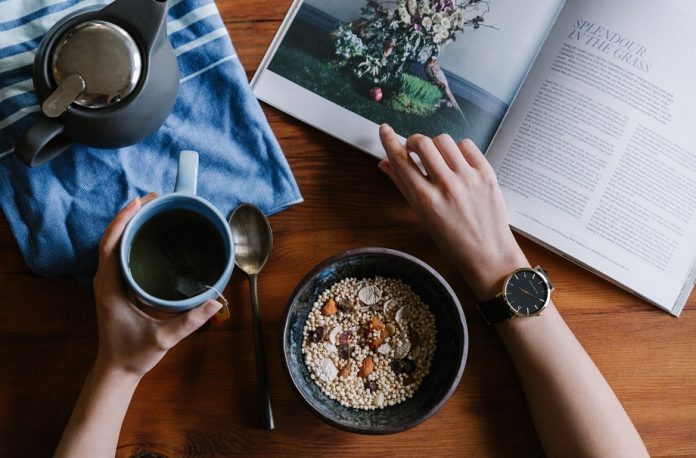Ample, good-quality sleep is just as indispensable to your overall well-being as an active lifestyle and adequate nutrition. Yet too many people still fail to get the quantity and quality of nightly rest needed for optimal daily living.
There are many reasons why Americans don’t get the recommended seven to nine hours per night. Whether it’s due to health issues or just trouble with consistency or sleep hygiene, lack of sleep has significant consequences.
Over time, sleep deprivation causes decreased mental functioning, difficulty regulating emotions, and myriad health problems. Before you spend another day frazzled and fatigued, here are six habits to adopt for your best sleep ever.
- Ensure Better Breathing
If sleep and the feeling of being rested are regularly eluding you, you might be suffering from a sleep disorder. Common indications are trouble falling or staying asleep, difficulty rising in the morning, or trouble staying awake during the day. It’s important to rule out legitimate medical concerns such as sleep apnea with the help of a healthcare provider.
Sleep apnea is a potentially life-threatening disorder where breathing stops during sleep. It’s typically treated with a CPAP (continuous positive airway pressure) machine, which keeps airways unobstructed. Since sleeping with a CPAP machine can be cumbersome, you will want the best CPAP mask for your individual needs. Be sure to try several different masks and give yourself plenty of time to adjust!
- Respect Your Rhythms
The body runs on 24-hour cycles, called circadian rhythms, which essentially act as the body’s inner clock mechanism. The sleep-wake cycle is probably the best-known of these circadian rhythms. During the day, the body is kept alert with daylight. As night falls, the darkness signals the body to produce melatonin, a hormone that aids in sleep. When this rhythm isn’t in sync, both the body and your life suffer.
It’s not possible to fully control the body’s circadian rhythms. However, there are plenty of simple ways to keep these rhythms on schedule. The most important thing you can do is go to sleep and wake up at roughly the same times every day. This goes for the weekends as well! Getting lots of sunlight during the day and limiting naps are two more ways to reinforce a strong circadian rhythm.
- Develop a Routine
A bedtime routine is an easy yet incredibly effective way to establish better sleep hygiene. Humans are creatures of habit, and creating good routines helps beneficial behaviors become almost automatic. Doing the same things in the same order each night will make your brain associate those activities with sleep.
A bedtime routine should start between 30 and 60 minutes before your bedtime and remain consistent each night. You can include things like dimming lights, putting on pajamas, having a cup of herbal tea, taking a warm bath, and brushing your teeth. Additional activities that can help the mind and body wind down are reading, stretching, journaling, and meditation. There is no wrong way to craft a calming bedtime routine as long as you can stick with it.
- Put Down the Electronics
Watching television and scrolling through social media are some of the least productive behaviors people engage in before sleep. Phones, computers, and televisions all emit blue light, which interferes with melatonin production and circadian rhythms. Furthermore, these devices are very mentally stimulating, when stimulation is the last thing you need before bed.
It is beneficial to have a “no electronics in bed,” rule and to limit time in bed to sleeping and intimacy only. It is also helpful to unplug from all electronics once you begin your bedtime routine to avoid blue light exposure. If you must use electronics at night, consider blue light–blocking glasses or apps to filter blue light from your devices.
- Limit Caffeine
For most people, there is something incredibly enjoyable about a good cup of coffee or tea. There are also plenty of legitimate benefits of caffeine, such as increased energy and focus and improved memory. However, caffeine is a stimulant, and it will impair your quality of sleep if consumed too late in the day.
A good rule of thumb is to stop all caffeine intake six to eight hours before your bedtime. Resist the urge to make up for lost sleep with extra caffeine in the afternoon. While it’s tempting to compensate for inadequate sleep with extra coffee during the day, this will only perpetuate the problem. If you really crave a cup of coffee or tea in the late afternoon or evenings, there’s always decaf!
- Get Some Well-Timed Exercise
Exercise is one of the best ways to improve both sleep and overall health. Countless studies show regular exercise improves sleep quality and decreases the time it takes to fall asleep. As little as 30 minutes of exercise a day can dramatically enhance your nightly slumber.
No type of exercise seems to be better than the others when it comes to sleep benefits. Running, walking, yoga, and weightlifting are all equally valuable for getting a better night’s sleep. Just be sure to exercise earlier in the day, as some people are sensitive to exercise’s invigorating effects on the mind and body.
The basic concept of sleep hygiene is simple. If you want good sleep, you have to create habits that are conducive to getting it. Making well-considered changes to your habits and routines will continue to improve the quality of your sleep, night after night. With time and persistence, you are sure to figure out what you need for your best sleep ever.


